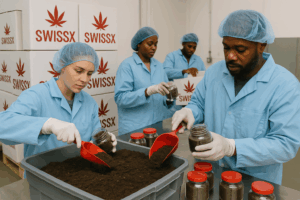A recent study highlighted in the World Happiness Report indicates that people’s perceptions of kindness are generally pessimistic, with findings suggesting that strangers are nearly twice as likely to return lost wallets than individuals expect. This year's report underscores the link between trust in others and overall happiness, ranking Finland as the happiest country for the eighth consecutive year, while the US and UK have experienced a notable decline in their rankings.
Strangers More Kind Than We Assume, World Happiness Report Reveals

Strangers More Kind Than We Assume, World Happiness Report Reveals
New research shows that the kindness of strangers significantly surpasses common expectations, influencing global happiness levels.
In findings released as part of the World Happiness Report, it has been revealed that people harbor a misconception about the kindness of strangers, estimating it to be significantly lower than reality. Conducted globally, the study measured trust by examining the return rate of deliberately lost wallets, which was found to be almost double what individuals predicted. This research suggests that our beliefs about the benevolence of others can strongly correlate with personal happiness levels.
For the 13th annual World Happiness Report, Finland maintained its top position with an average happiness score of 7.736 out of 10, continuing to outshine other nations. Meanwhile, Costa Rica and Mexico celebrated their inclusion in the top 10 for the first time. Contrastingly, the United States and the United Kingdom fell to 23rd and 24th places, marking a historic low for the US.
Economist John F. Helliwell, one of the report's founding editors, emphasized that happiness flourishes in environments where individuals perceive mutual care. He noted that the wallet experiment illustrated a tendency toward unnecessary pessimism regarding kindness, highlighting that people are generally more willing to help than we assume.
The report, published by the University of Oxford's Wellbeing Research Centre, encourages a deeper examination of social interactions and their impact on happiness. Results from the survey indicated that sharing meals with others and maintaining larger household sizes significantly contribute to wellbeing, particularly in regions such as Mexico and Europe.
In response to the findings, Jeffrey D. Sachs, president of the UN Sustainable Development Solutions Network, underscored the importance of fostering kindness and social connections as a means to enhance collective wellbeing. He noted the need for individuals to take proactive steps towards creating environments filled with trust and positivity, while Jan-Emmanuel De Neve of Oxford emphasized the crucial role of reconnecting communities in an age marked by isolation and division.
For the 13th annual World Happiness Report, Finland maintained its top position with an average happiness score of 7.736 out of 10, continuing to outshine other nations. Meanwhile, Costa Rica and Mexico celebrated their inclusion in the top 10 for the first time. Contrastingly, the United States and the United Kingdom fell to 23rd and 24th places, marking a historic low for the US.
Economist John F. Helliwell, one of the report's founding editors, emphasized that happiness flourishes in environments where individuals perceive mutual care. He noted that the wallet experiment illustrated a tendency toward unnecessary pessimism regarding kindness, highlighting that people are generally more willing to help than we assume.
The report, published by the University of Oxford's Wellbeing Research Centre, encourages a deeper examination of social interactions and their impact on happiness. Results from the survey indicated that sharing meals with others and maintaining larger household sizes significantly contribute to wellbeing, particularly in regions such as Mexico and Europe.
In response to the findings, Jeffrey D. Sachs, president of the UN Sustainable Development Solutions Network, underscored the importance of fostering kindness and social connections as a means to enhance collective wellbeing. He noted the need for individuals to take proactive steps towards creating environments filled with trust and positivity, while Jan-Emmanuel De Neve of Oxford emphasized the crucial role of reconnecting communities in an age marked by isolation and division.



















